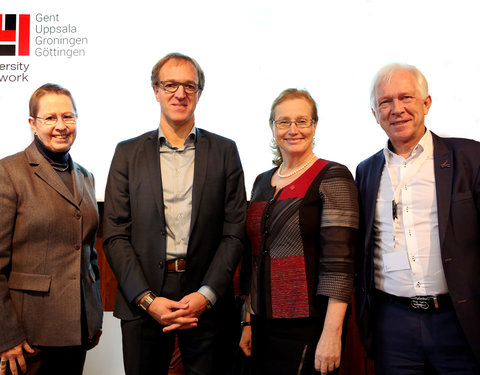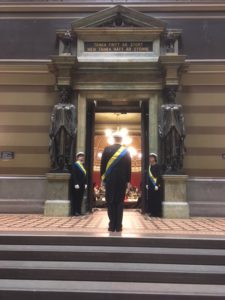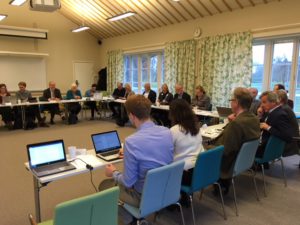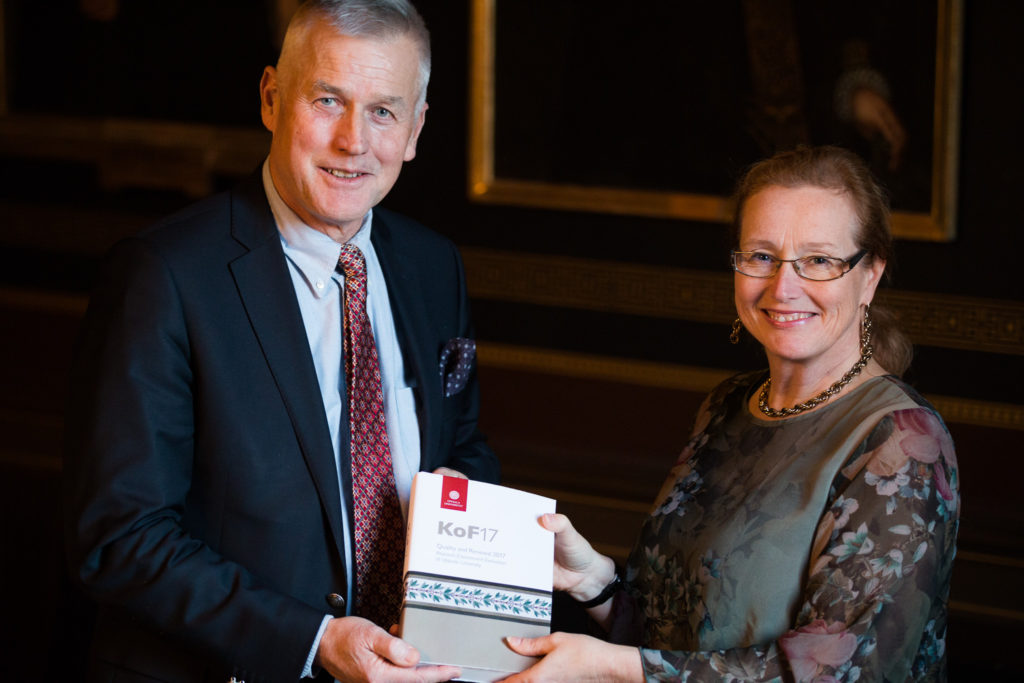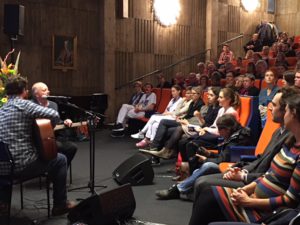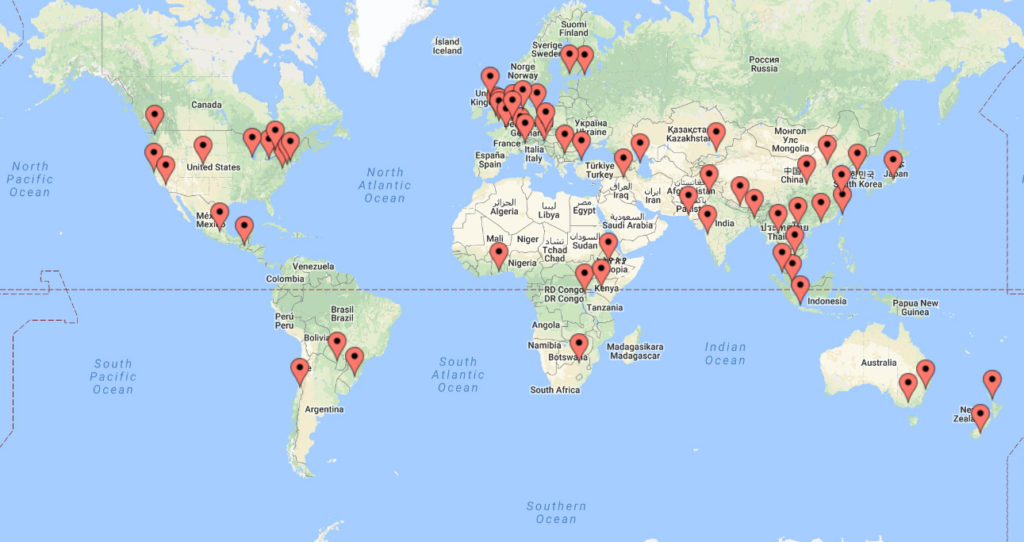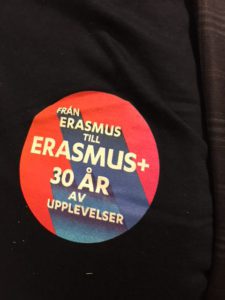Uppsala University is a member of The Guild of European Research-Intensive Universities. One of the purposes of this network is to give our University, among others, a more distinct presence in Brussels. (You may have read about this in earlier posts on this blog.) We hope that participation in the Guild will increase our leverage in European research and education policy.
We have a long tradition of collaboration with researchers throughout the world, but we have stronger relationships with some countries than with others. This is why there has been great concern since the Brexit referendum. Brexit negotiations are now in progress and from Uppsala’s perspective, it is important that cooperation with the United Kingdom in particular can continue to function smoothly. Many universities all around Europe are discussing solutions and agreements, research cooperation and student cooperation.
In this context the Guild, today published a statement signed by all member universities. You can read the statement here: Guild Statement on Brexit
Investing in the Future of Europe – The Guild’s statement on Brexit
As Brexit talks continue, it is crucial to restate the importance of joint investment in knowledge, human capital and innovation, enabled across borders by European universities. Ensuring the welfare of Europe’s economies and strengthening our societies requires more collaboration in research and innovation, not less. The success of European universities depends on their ability to circulate ideas freely, through their researchers, students and alumni. This must not be affected adversely by Brexit.
We need continued investment in student mobility, including between the EU and the UK, to strengthen our societies and ensure economic resilience. For students, spending time abroad halves the risks of long-term unemployment. In 2013-14, around 272,000 students across Europe studied abroad with an Erasmus+ grant;1 and 15% of that mobility was between the UK and other European countries.2 Of the 290,000 students undertaking a traineeship abroad between 2007 and 2013, one-third were offered employment by their host countries, and 10% created their own companies. It is hard to think of a better return of an investment of €274 per student per month for life-long high-quality employment, social welfare, and economic growth across Europe.3
We call for investment in EU framework programmes to sustain and enhance the quality of research in Europe, including the UK. By definition, Europe’s knowledge economies rely on the creation of new knowledge. Bringing the best minds together across borders to collaborate on solving scientific challenges is critical to maximizing the impact of research. The field-weighted citation index for EU-funded research publications for the period 2007-16 is 2.44 (with 1 representing the worldwide average), far exceeding that achieved by researchers funded nationally, in any country.4
The free circulation of ideas can best be guaranteed by the free and uninterrupted movement of researchers, students and their families. A study published recently in Nature shows that the normalized citation score for mobile scientists exceeds that of non-mobile scientists in Western Europe by 47%. Scholars who are mobile during their careers benefit the receiving country, but also the country of origin where they contribute to fostering international networks.5 Similarly, students must have the right to study for a full-time degree at the university that best suits their interests and needs. Our economies and university communities benefit from the skills and creativity of these graduates.
We urge continued long-term support for innovation across borders. Our graduates and our research are central to the success of European industry and entrepreneurship, and to the ability of European products to remain competitive in a fast-changing world. Since 2008, for instance, the Clean Sky2 initiative has brought together over 600 public and private partners to collaborate with European aeronautical industries, to ensure that European aviation continues to be at the forefront of the effort to reduce emissions. It involves UK-based multinationals like Rolls Royce, and 16 out of approximately 90 participating universities are British. Undermining the status of UK participation cannot be in anyone’s interest.6 Investment in innovation and skills across borders is the best guarantee that any jobs lost as a result of globalization are replaced by high-skilled employment.
1 European Commission (2015). Erasmus: Facts, Figures and Trends. Luxembourg: Office for Official Publications of the European Communities. [Online]. Available from http://ec.europa.eu/dgs/education_culture/repository/ education/library/statistics/erasmus-plus-facts-figures_en.pdf [accessed 17 October 2017].
2 European Commission (2015). Erasmus+ Statistics 2014 – United Kingdom. Office for Official Publications of Publications of the European Communities. [Online]. Available from http://ec.europa.eu/dgs/education_culture/ repository/education/library/statistics/2014/united-kingdom_en.pdf [accessed 17 October 2017].
3 European Commission (2015). Erasmus: Facts, Figures and Trends. Luxembourg: Office for Official Publications of the European Communities. [Online]. Available from http://ec.europa.eu/dgs/education_culture/repository/ education/library/statistics/erasmus-plus-facts-figures_en.pdf [accessed 17 October 2017].
4 EU Commission, Horizon 2020 Monitoring Report 2015 (2016), p.67. Individual national field-weighted citation indeces include Switzerland (1.8), the Netherlands (1.77), the UK (1.54) and Germany (1.41). The Royal Society makes this point specifically for the UK. The Royal Society – Science Policy Centre (2016). UK research and the European Union: The role of the EU in funding UK research. [Online]. Available from https://royalsociety.org/~/ media/policy/projects/eu-uk-funding/uk-membership-of-eu.pdf [accessed 17 October 2017].
5 Cassidy R. Sugimoto et. al. (2017). Scientists have the most impact when they move. Nature, 550(7674), 29-31. https://www.nature.com/news/scientists-have-most-impact-when-they-re-free-to-move-1.22730 [accessed 24 October 2017].
6 See http://www.cleansky.eu.

